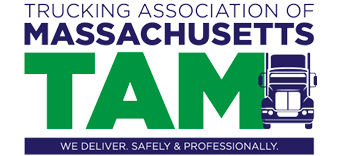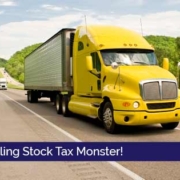Trucking in Massachusetts; How the Rolling Stock Tax impacts you
The Massachusetts Department of Revenue (DOR) secured a change in the tax law in the mid-1990s and is only now enforcing it. The change? The ability to tax rolling stock if a company has a “substantial nexus” to the state!
While 37 states exempt the sales and use tax on rolling stock, Massachusetts now applies this tax to newly purchased trucks because of this law and a company’s “substantial nexus” to the state.
Under Massachusetts law, a “substantial nexus” or “tax jurisdiction” can be established when a company:
- is headquartered or commercially domiciled in the state
- owns real or tangible personal property in the state, including property that is possessed, held or used by another person pursuant to a lease, license, consignment or other arrangement;
- uses real or tangible personal property that it does not own in the state, including property that it possesses or holds pursuant to a lease, license, consignment or other arrangement;
- has a full or part-time employee acting on its behalf in the state, irrespective of the nature of the employment, see 830 CMR 63.39.1(3)(c)
- has an independent contractor or other non-employee representative acting or operating on its behalf in the state for the purpose of selling, delivering, installing, assembling, maintaining or repairing the corporation’s products, or taking orders for or otherwise establishing or maintaining a market for the corporation’s products and/or services in the state, see 830 CMR 63.39.1(3)(c);
- does not have the contacts or other incidents with the state as referenced in 830 CMR 63.39.1(3)(b)1. through 7., but has considerable in-state sales derived through either economic or virtual contacts. See 830 CMR 63.39.1(3)(d). See also South Dakota v. Wayfair, Inc., 138 S. Ct. 2080 (2018).
If the DOR reviews your company, it can seek tax on any rolling stock you’ve purchased for the past three to six years.
For example, consider the following: Your company has a terminal, customer service center or headquarters in Massachusetts. You’ve purchased six tractors every year in New Hampshire for five years. Sales tax, if the vehicles were purchased in Massachusetts, might be approximately $8,500 each (i.e. $135,000 x 6.25%). Each year, you send the six trucks to your Massachusetts terminal to be upfitted according to your company’s standards, but they are otherwise used outside of the state. The DOR, because of your substantial nexus to the state and the vehicles’ entry into the state, could try to collect over $250,000 plus penalties for six years’ worth of unpaid taxes. (5 years x $51,000 in taxes owed (i.e. 6 tractors x $8,500)). In reality, certain trucking companies have already been assessed back taxes and penalties exceeding millions of dollars and penalties under similar scenarios.
TAM is currently working with elected officials to remove this rolling stock tax from law. Last legislative session, the Massachusetts House of Representatives passed this exemption.
A study by the Dukakis Center at Northeastern University showed that eliminating the rolling stock tax in Massachusetts will provide for future growth of the trucking industry, improve public safety and produce public safety benefits.
TAM has been working with other organizations, including statewide business, environmental, and public safety groups to reverse this law.
Removing the rolling stock tax from Massachusetts law is just one of many initiatives that TAM works on for the Massachusetts trucking industry.



